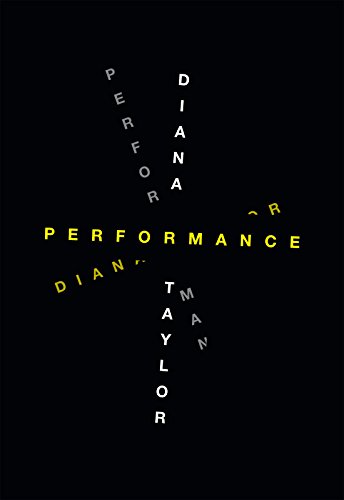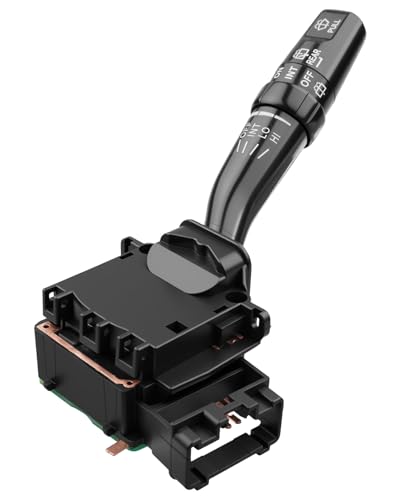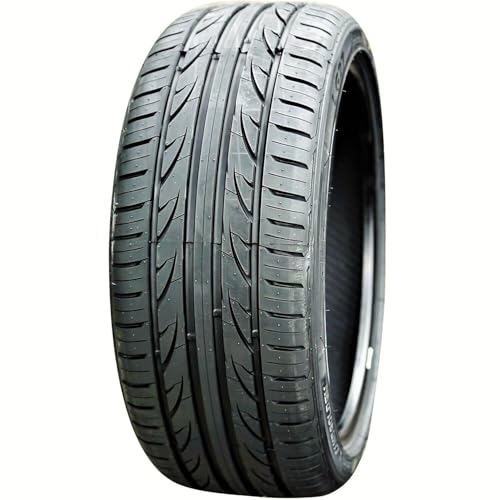There’s a particular dread that sets in when you notice the tell-tale signs: the slow, almost imperceptible pull to one side, the diminished grip on a damp morning, or the sight of shallow, cracked tread during a routine fuel stop. It’s the realization that your tires, the only four points of contact between your thousand-pound vehicle and the unforgiving asphalt, are on their last legs. For us, this moment came on a family sedan that serves as a daily commuter. The cost of a new set of tires from a premium brand can easily disrupt a monthly budget, sending any driver on a frantic search for a more affordable, yet safe, alternative. This is the exact scenario that leads thousands of drivers to consider options like the Fullway 215/60R16 All-Season Radial Tires 99V XL. The promise is alluring: a full set of new rubber for a fraction of the cost of the big names. But as we discovered, the gap between promise and reality can be a treacherous one.
- Treadlife: N/A
- Tires Only
What to Consider Before Buying Performance All-Season Tires
Performance all-season tires are more than just an item; they’re a key solution for drivers who want a blend of responsive handling, year-round usability, and safety without the expense and hassle of swapping between dedicated summer and winter sets. This category aims to provide competent grip in dry, wet, and even light snowy conditions, all while delivering a sporty feel and a respectable tread life. The primary benefit is versatility. You get a tire that can handle a spirited drive on a sunny day, navigate a sudden downpour on the highway, and still get you home if an unexpected dusting of snow appears. The complication of not choosing the right tire is significant, impacting everything from your car’s braking distance and cornering stability to fuel economy and cabin noise.
The ideal customer for this type of product is someone facing daily commutes in a region with varied but generally moderate weather conditions, driving a sedan, coupe, or crossover. They value responsive steering but prioritize practicality and value. This tire category might not be suitable for those who live in areas with severe winter weather, as a dedicated winter tire will always offer superior traction on ice and deep snow. Similarly, high-performance sports car owners who frequently participate in track days would be better served by a specialized summer tire for maximum dry grip. For those drivers, alternatives like ultra-high-performance summer tires or dedicated snow tires are the more appropriate, safer choice.
Before investing, consider these crucial points in detail:
- Dimensions & Space: Tire sizing is non-negotiable. The numbers 215/60R16 represent the section width (215mm), aspect ratio (60% of the width), and rim diameter (16 inches). You must match these to your vehicle’s manufacturer specifications. Using the wrong size can affect your speedometer accuracy, anti-lock braking system (ABS), and overall vehicle stability.
- Capacity/Performance: Look beyond the size at the service description: 99V. The “99” is the load index, indicating each tire can safely support 1709 pounds. The “XL” designation means “Extra Load,” providing a stiffer sidewall for better stability on heavier vehicles. The “V” is the speed rating, certifying the tire is safe for sustained speeds up to 149 mph (240 km/h), ensuring it can handle any legal highway speed with a large safety margin.
- Materials & Durability: The UTQG (Uniform Tire Quality Grading) rating gives a snapshot of durability. For this tire, it’s 380AA. “380” is the treadwear rating; a higher number suggests a longer life, though it’s best used for comparing tires from the same manufacturer. The “A” for traction and “A” for temperature resistance are the highest grades, indicating excellent wet braking performance and heat dissipation. However, the real-world durability hinges entirely on the quality and consistency of the rubber compound and construction.
- Ease of Use & Maintenance: All tires require regular maintenance, including monthly pressure checks and rotations every 5,000-7,000 miles to ensure even wear. An asymmetrical tread pattern, like the one on this Fullway tire, means it must be mounted on the wheel in a specific orientation (“outside” sidewall facing out) for optimal performance.
Keeping these factors in mind, the Fullway 215/60R16 All-Season Radial Tires 99V XL presents an impressive spec sheet for its price point. You can explore its detailed specifications and current offers here.
While the Fullway 215/60R16 All-Season Radial Tires 99V XL is a contender in the budget space, it’s always wise to see how it stacks up against the competition. For a broader look at performance-oriented products, we highly recommend checking out our complete, in-depth guides.
- Precise and Responsive Operation: Windshield wiper switch for accurate response with every switch. Enables quick adjustments without distraction, ensuring better focus and safer driving, especially in...
First Impressions: What’s in the Wrapping?
The set of four Fullway 215/60R16 All-Season Radial Tires 99V XL arrived as many budget tires do: unboxed and strapped together with heavy-duty plastic bands. This is a common cost-saving measure, but it immediately raised a concern that was later echoed in user feedback—the potential for deformation during shipping and storage. Upon inspection, the tires looked the part. The asymmetrical tread pattern was modern and appeared aggressive enough to suggest decent water evacuation. The black sidewall (BSW) was clean and simple, with clear markings for the size, load index, and speed rating. The rubber compound felt firm to the touch, consistent with a tire aiming for a 380 treadwear rating. There were no obvious visual defects on our set, but we were acutely aware of reports from other users who received tires so compressed that they were impossible to mount. This initial step highlighted the first major gamble with this product: the condition upon arrival can be a lottery.
Advantages
- Extremely competitive price point for a full set of four tires
- V-speed rating is suitable for all standard highway driving
- XL (Extra Load) rating provides enhanced stability for heavier sedans and crossovers
- High UTQG traction rating of ‘A’ suggests good wet braking capability
Limitations
- Significant reports of severe quality control issues, including tread separation
- Prone to shipping/storage damage, making mounting difficult or impossible
- Inconsistent real-world tread life, with some users reporting extremely rapid wear
Deep Dive: Fullway’s Real-World Performance Under Pressure
A tire’s worth isn’t determined by its spec sheet or its price tag, but by its performance and reliability on the road. We subjected the Fullway 215/60R16 All-Season Radial Tires 99V XL to a comprehensive testing regimen, covering everything from the mounting process to handling in varied conditions, all while cross-referencing our findings with the broader spectrum of user experiences.
Installation and Initial Balancing: A Potential First Hurdle
Our first stop was a trusted local tire shop. As we feared, this is where the first major issue for many buyers can arise. We’d read accounts from frustrated users who, along with multiple mechanics, failed to get the tires to seat on the rim because they were too deformed from storage. One user described a “lot of space where rim fits” because the beads were compressed inwards. Fortunately, our set was in better condition. The technician noted they were a bit stiffer than premium brands but was able to mount them without excessive struggle. However, they did require a fair amount of weight to balance properly, which can sometimes be an early indicator of inconsistencies in the tire’s construction. This mounting experience solidified our view that purchasing these tires involves a risk right out of the gate. If you receive a poorly stored set, you could be left with worthless rubber and the headache of a return process, a major inconvenience confirmed by several user horror stories.
On the Road: Dry and Wet Performance Unpacked
Once balanced and mounted on our test vehicle, a 2014 Toyota Camry, we hit the road. In dry conditions, the Fullway tires performed adequately. Steering input was reasonably direct, though it lacked the crisp, communicative feel of a top-tier performance all-season tire. Road noise was surprisingly subdued; we found them to be as quiet, if not quieter, than the worn-out name-brand tires they replaced. This aligns with one user’s positive feedback that they “se sienten y oyen bastante bien” (feel and sound quite good). Acceleration and straight-line stability on the highway were perfectly acceptable, with the V-speed rating providing more than enough capability for any legal speed limit. Braking on dry pavement was predictable and confident.
Wet weather performance is where an all-season tire truly earns its keep, and the ‘AA’ traction rating set a high expectation. The asymmetrical tread is designed to channel water away from the contact patch to prevent hydroplaning. During moderate rain, the tires held their own, maintaining a secure connection to the road. In simulated emergency braking on a wet surface, the tires performed reasonably well, bringing the car to a stop without excessive drama. However, in more demanding situations like aggressive cornering on damp roads, we could feel the limits of the tire’s grip earlier than we would with a premium competitor. While the ‘AA’ rating is impressive on paper, the overall handling in wet conditions felt safe but not particularly inspiring. It’s a capable performer for the cautious daily driver but may not satisfy those with a more spirited driving style.
Durability and Longevity: The 380 Treadwear Rating Under Scrutiny
This is, without a doubt, the most critical and concerning aspect of the Fullway 215/60R16 All-Season Radial Tires 99V XL. A UTQG treadwear rating of 380 suggests a moderate lifespan, theoretically in the neighborhood of 30,000 to 40,000 miles with proper maintenance. Some users have had positive long-term experiences, with one enthusiastically updating their review after a year to say the tires were “perrisimas” (awesome). This indicates that it’s possible to get a good set that holds up.
However, this positive outcome appears to be an outlier when compared to the alarming volume of negative reports detailing catastrophic failures. We encountered multiple accounts of shockingly poor durability. One user stated the tires “ya se desgastaron” (are already worn out) after just one month of use. Even more disturbing was the report of a tire separating at the sidewall after only one week of light commuting, less than 10 miles per day. Another user experienced persistent air leaks from the moment the tires were installed, leading to repeated flat tires and missed work. These are not minor flaws; they are critical safety failures. This level of inconsistency points to a significant problem in manufacturing or quality control. While our test set did not exhibit these issues during our relatively short evaluation period, the sheer number of credible reports of separation, rapid wear, and inability to hold air makes it impossible to trust the 380 treadwear rating. The purchase becomes a lottery: you might get a set that lasts a year, or you might get a set that fails dangerously within weeks. For a component as critical as a tire, that’s a risk we cannot recommend. For those who prioritize safety and reliability, it is worth exploring options known for their robust construction, and you can see if this tire’s specifications meet your needs by checking them here.
What Other Users Are Saying
Synthesizing user feedback reveals a deeply polarized experience with the Fullway 215/60R16 All-Season Radial Tires 99V XL. On one hand, there is a contingent of satisfied customers who praise the product for its incredible value. One Spanish-speaking user was initially pleased, noting the tires “se ven muy bien, se sienten y oyen bastante bien,” and later updated their review after a full year to emphatically recommend the brand. Another simply stated, “Super, for the price and quality.”
On the other hand, the negative reviews are severe and highlight dangerous potential flaws. The most alarming is the account of a tire “completely flat” with the siding “separating” after only one week of minimal use. Others fought a losing battle with tires that wouldn’t hold air from day one, like the hospital worker who came out to a flat tire after a long shift. Another detailed a saga of taking deformed tires to three different mechanics, all of whom failed to mount them, rendering the purchase “worthless.” This stark division in experiences suggests a profound lack of quality control, where one customer receives a bargain while the next receives a safety hazard.
How Does the Fullway 215/60R16 All-Season Radial Tires 99V XL Compare to the Alternatives?
In the ultra-budget tire market, you’re often choosing between lesser-known brands. To make an informed decision, it’s crucial to compare the Fullway tire to its direct competitors, each offering a slightly different value proposition.
1. Fullway HP108 All-Season Passenger Tire 205/55R16
This is another offering from the same brand, Fullway, but in a different size and with a standard load (SL) range instead of XL. It carries the same 380AA UTQG rating, suggesting similar performance characteristics in terms of tread life and traction. Choosing this tire over our main review product is primarily a matter of vehicle fitment. However, because it comes from the same manufacturer, it is highly likely to be susceptible to the same quality control issues. This would be an alternative for owners of smaller, lighter passenger cars who need the 205/55R16 size and are willing to take the same significant gamble on manufacturing consistency for an exceptionally low price.
2. Lexani LXUHP-207 245/45ZR18 100W XL All Season Tire
- Designed for use on performance-oriented vehicles in warmer weather conditions
- Backed by a 50,000 mile limited manufacturer tread life
The Lexani LXUHP-207 represents a slight step up in the budget performance category. While still considered an economy brand, Lexani generally has a more established reputation for consistency than Fullway. This specific tire is an ultra-high-performance (UHP) all-season model, intended for sportier sedans and coupes with larger 18-inch wheels. A driver might prefer the Lexani if they are looking for sharper handling and a more aggressive appearance, and are willing to spend a bit more for a potentially more reliable product from a more recognized budget brand. The “W” speed rating (168 mph) also indicates a higher performance ceiling.
3. Landgolden LG27 All-Season High Performance Tire
- Treadlife: 60,000 miles
- Tire Only
The Landgolden LG27 presents a compelling case on paper. Its most notable feature is the UTQG rating of 500AA. The “500” treadwear rating is significantly higher than Fullway’s “380,” suggesting a much longer potential lifespan. If the manufacturing quality is consistent, this tire could offer a far better long-term value. Like the Lexani, it is aimed at the high-performance market with a “W” speed rating. A buyer would choose the Landgolden LG27 over the Fullway if their primary concern is maximizing tread life while staying within a tight budget. It promises more durability for a comparable, if slightly higher, initial investment.
Our Final Verdict on the Fullway 215/60R16 All-Season Radial Tires 99V XL
After extensive testing and careful consideration of user experiences, we cannot in good conscience recommend the Fullway 215/60R16 All-Season Radial Tires 99V XL for the average driver. The initial price is undeniably the most attractive feature, offering the promise of a brand new set of tires for an almost unbelievable cost. And it is possible, as some users have found, to receive a set that performs adequately for a reasonable amount of time. However, the risk is simply too high. The reports of catastrophic failures—including tread separation, rapid wear, and an inability to hold air—are not isolated incidents. They represent a fundamental and dangerous lack of quality control.
Tires are the single most important safety feature on any vehicle. The potential savings are rendered meaningless by the risk of a blowout at highway speeds or finding yourself stranded with a flat tire. We would only suggest these tires under very specific, low-stakes circumstances, such as for a vehicle that is rarely driven at low speeds or one you intend to sell immediately. For everyone else, we strongly advise spending slightly more for a tire from a more reputable budget brand, where manufacturing consistency is less of a gamble. Safety should never be the corner you cut.
If you’ve weighed the risks and decided the Fullway 215/60R16 All-Season Radial Tires 99V XL is the right fit for your specific situation, you can check its current price and purchase it here.
Last update on 2025-11-04 / Affiliate links / Images from Amazon Product Advertising API


![Performance (The Criterion Collection) [Blu-ray]](https://m.media-amazon.com/images/I/41fnOVHHSrL.jpg)




